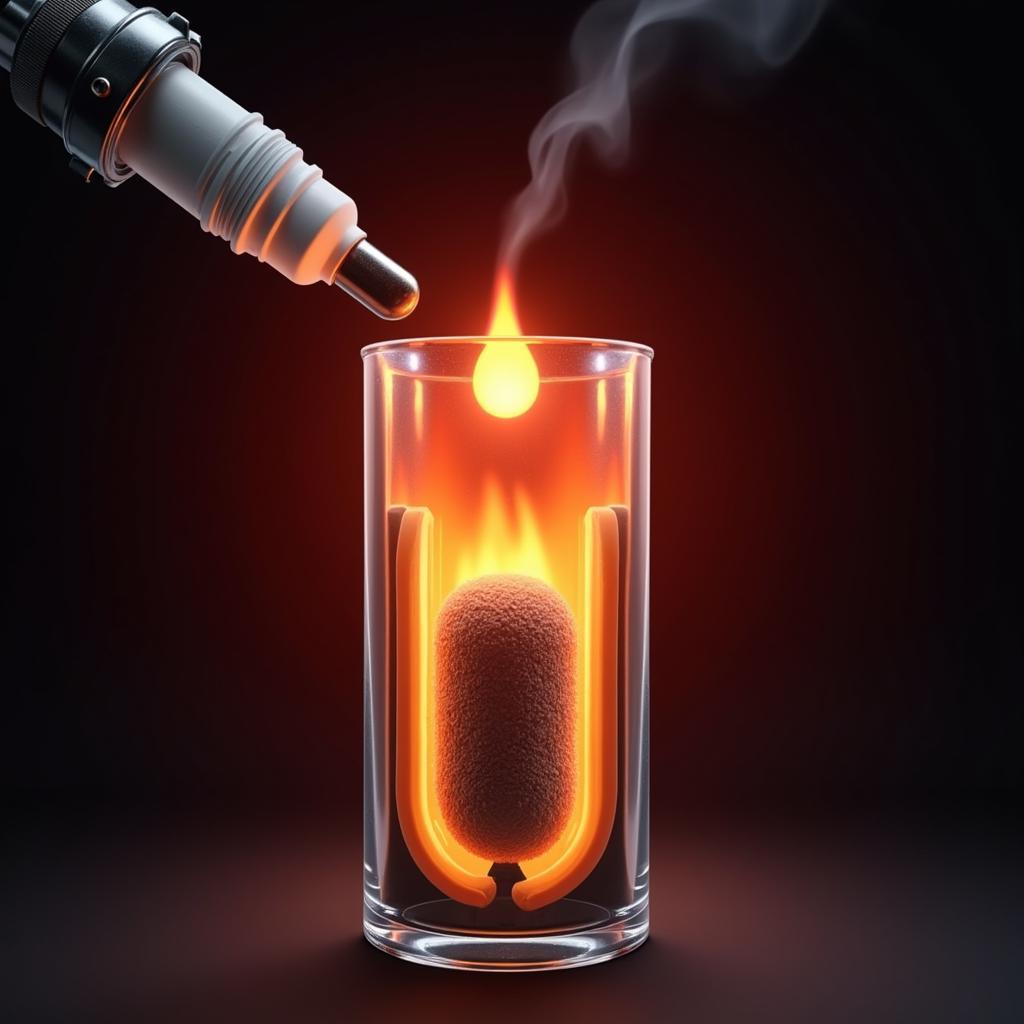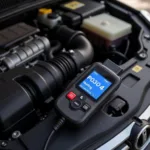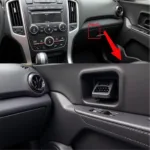The OBD2 code P0172 signals a problem with your car’s engine air-fuel mixture. Specifically, it means the engine control unit (ECU) has detected a rich fuel mixture in the engine bank 1. This means there is too much fuel compared to the amount of air in the combustion chamber. A well-balanced air-fuel ratio is essential for optimal engine performance, fuel efficiency, and emissions control.
Understanding OBD2 Code P0172
Before diving into the causes and fixes, it’s important to understand why the P0172 code is triggered. Your car’s ECU constantly monitors the air-fuel mixture using various sensors, including the oxygen sensor (O2 sensor) and mass airflow sensor (MAF sensor). When the O2 sensor in bank 1 detects an excessively rich mixture, it signals the ECU, which then stores the P0172 code.
Common Causes of OBD2 Code P0172
A range of issues can lead to a rich fuel mixture and trigger the P0172 code. Some of the most frequent culprits include:
- Faulty Oxygen Sensor (Bank 1, Sensor 1): This sensor plays a crucial role in measuring the oxygen content in the exhaust gases, which the ECU uses to adjust the air-fuel ratio. A malfunctioning O2 sensor can provide inaccurate readings, causing the ECU to inject too much fuel.
- Malfunctioning Mass Airflow (MAF) Sensor: The MAF sensor measures the amount of air entering the engine. If it fails to provide accurate readings, the ECU won’t know how much fuel to inject, potentially leading to a rich mixture.
- Fuel Injector Problems: Leaky or clogged fuel injectors can disrupt the precise fuel delivery into the combustion chamber. A leaking injector can lead to an excessively rich mixture.
- Vacuum Leaks: Leaks in the intake manifold or vacuum hoses can disrupt the engine’s air intake system. This disruption can cause an imbalance in the air-fuel ratio, leading to a richer mixture.
- Faulty Fuel Pressure Regulator: The fuel pressure regulator maintains the correct pressure of fuel delivered to the injectors. If it malfunctions and allows too much fuel pressure, the injectors may deliver more fuel than needed.
- Evaporative Emission (EVAP) System Issues: Problems with the EVAP system, particularly a faulty purge valve, can introduce fuel vapors into the intake manifold, enriching the air-fuel mixture.
Symptoms of a Rich Fuel Mixture (P0172)
Besides the illuminated check engine light, a rich fuel mixture can manifest through several noticeable symptoms:
- Decreased Fuel Economy: One of the most immediate signs is a significant drop in your car’s fuel mileage.
- Black Smoke from Exhaust: A strong smell of gasoline and black smoke coming from the tailpipe is a common indicator of a rich fuel mixture.
- Rough Idle and Engine Misfires: The engine may run rough, especially when idling, due to incomplete combustion caused by the excessive fuel.
- Engine Hesitation or Stalling: The engine might hesitate or stall during acceleration or when under load due to an improper air-fuel mixture.
- Spark Plug Fouling: Excessive fuel can lead to the buildup of carbon deposits on the spark plugs, impacting their performance and potentially leading to misfires.
Diagnosing and Fixing OBD2 Code P0172
While this article provides information on the P0172 code, it’s important to note that diagnosing and fixing car problems requires specialized knowledge and tools. If you suspect your vehicle has a rich fuel mixture issue:
- Read the OBD2 Code: Use an OBD2 scanner to confirm the P0172 code and check for any other codes that might be stored in the ECU.
- Inspect for Vacuum Leaks: Carefully examine the intake manifold, vacuum hoses, and other related components for any signs of leaks or cracks.
- Check the Oxygen Sensor: Test the oxygen sensor’s voltage readings using a multimeter to ensure it’s functioning correctly.
- Inspect the MAF Sensor: Visually inspect the MAF sensor for dirt or debris. Clean it if necessary and test its readings with a multimeter.
- Check Fuel Pressure: Use a fuel pressure gauge to test the fuel pressure at the fuel rail to ensure it’s within the manufacturer’s specifications.
- Examine Fuel Injectors: Inspect the fuel injectors for leaks and check their spray pattern for any irregularities.
“When dealing with engine codes like P0172, it’s crucial to have a systematic approach to diagnosis. Start by addressing the most common causes and work your way through the possibilities based on your findings.” – John Miller, Senior Automotive Technician at CarDiagTech Workshop
Conclusion
Addressing the OBD2 code P0172 promptly is vital for maintaining your vehicle’s health, fuel efficiency, and emissions performance. Ignoring this code can lead to more severe engine problems and costly repairs down the line. While diagnosing car troubles requires expertise, understanding the potential causes and symptoms of a rich fuel mixture can help you address the issue effectively and get your car back in top shape.
FAQs about OBD2 Code P0172
Can I still drive my car with the P0172 code?
It’s not recommended to drive for extended periods with the P0172 code. A rich fuel mixture can potentially damage your catalytic converter and cause other engine problems.
Is it expensive to fix the P0172 code?
The repair cost depends on the underlying cause. A simple fix like replacing a faulty oxygen sensor might be relatively inexpensive. However, if the issue stems from a more complex problem like a damaged ECU, the cost can be significantly higher.
Can a bad gas cap trigger the P0172 code?
While a loose or damaged gas cap can trigger other EVAP system codes, it’s less likely to be the direct cause of a P0172 code.
How often should I get my car’s engine checked?
It’s advisable to follow your car manufacturer’s recommended maintenance schedule for engine checks and tune-ups. Regular inspections can help prevent potential issues like the P0172 code.
Can using the wrong type of fuel cause a P0172 code?
Using the incorrect octane rating fuel for your car is unlikely to directly cause a P0172 code. However, it’s always best to stick to your manufacturer’s recommended fuel type for optimal engine performance.
Need further assistance with OBD2 codes or have car diagnostic questions?
Contact our expert team at WhatsApp: +1(641)206-8880, Email: [email protected]. We offer 24/7 customer support to help you get back on the road.


